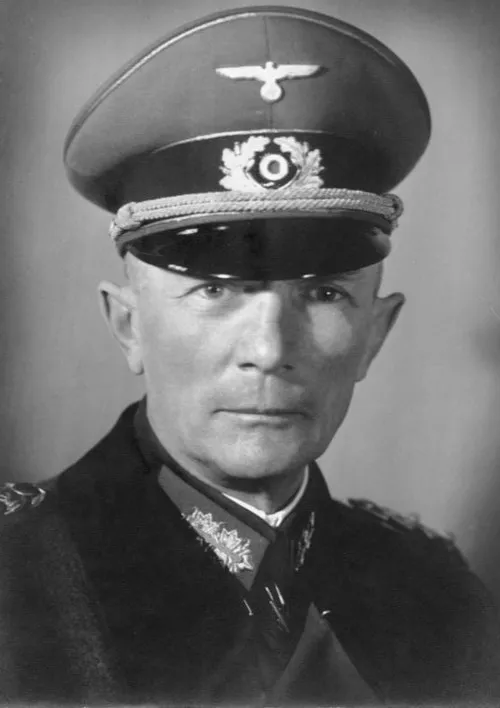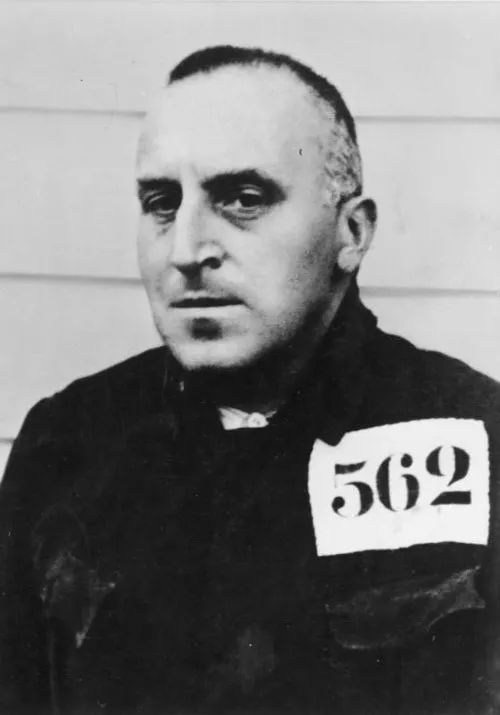
Name: Fedor von Bock
Nationality: German
Rank: Field Marshal
Birth Year: 1880
Death Year: 1945
Fedor von Bock: A Legacy of Military Ambition and Complexity
The year was 1945, a time when the world was reeling from the devastation of war. Amidst the ashes of conflict, Fedor von Bock, a prominent German field marshal whose life had been marked by both strategic brilliance and questionable alliances, took his final breath. His death marked not just the end of an era for one military leader but also symbolized the collapse of a grand vision that he had devoted his life to defending.
A Rise Forged in Conflict
Born in 1880 into a Prussian family steeped in military tradition, von Bock's destiny seemed almost preordained. He grew up under the looming shadows of military monuments that celebrated centuries of martial glory. This environment ignited within him a fervent ambition to climb the ranks and wield influence over armies a dream he would pursue relentlessly.
However, as fate would have it, his early career began with setbacks that could easily deter any aspiring soldier. World War I was just around the corner when he joined the Imperial German Army, where he faced initial obscurity amidst seasoned veterans. Despite this rocky start, von Bock demonstrated remarkable aptitude on various battlefields his tactical mind began to shine during critical engagements such as at Verdun and on the Eastern Front.
The Architect of Blitzkrieg
As Germany prepared for another tumultuous chapter in history the rise of Nazi power von Bock emerged as a figure synonymous with what would later be called "Blitzkrieg" tactics. In 1939, following Hitler's orders, he orchestrated rapid advances into Poland that showcased his ability to combine speed with overwhelming force.
Arguably one could say this success laid down a gauntlet for others; however, it came at an ethical cost. Many historians recount how von Bock’s strategies often resulted in catastrophic human suffering civilians caught between warring factions were frequent casualties of his campaigns.
A Double-Edged Sword: Commanding Successes and Staggering Failures
Ironically, while von Bock thrived on strategic victories like those during Operation Barbarossa against Soviet forces in 1941 which initially projected Germany’s dominance it soon became clear that these victories were not sustainable without addressing broader operational issues.
This juxtaposition between triumphs on paper versus failures on reality manifested tragically as winter set upon Russian soil; supply lines faltered while morale dwindled among troops facing brutal conditions a phenomenon many speculate haunted him deeply throughout his later years.
The Downfall Begins
After enduring several grueling campaigns filled with high hopes but ultimately disappointing outcomes such as Stalingrad's disastrous defeat or facing relentless Soviet counteroffensives it became evident that even great strategists like von Bock could fall victim to their hubris!
This decline reflected broader issues within Nazi leadership too; infighting among generals hampered coherent strategy implementation all while sacrifices made by ordinary soldiers were left unrewarded amid political machinations further complicating their plight...
A Man Torn Between Loyalty and Conscience
An interesting aspect about Fedor von Bock was how torn he appeared throughout these events! As one historian noted: “He demonstrated fierce loyalty towards Hitler but harbored doubts regarding certain orders.” Was it misplaced patriotism? Or perhaps fear? Who knows...but whatever drove him forward shaped both personal choices alongside fateful decisions impacting thousands around Europe!
The Final Chapters: A Diminishing Presence
As Allied forces gained ground toward Berlin in early 1945 the horizon darkened not only for Germany’s future but also for figures like Von Bock himself! Despite commands issued later during key battles near Dresden being met with retreat or failure due largely due loss numbers coupled complications caused by political disarray…it felt increasingly hopeless!
The Bitter End: Surrendering Before Fate Intervenes
Ultimately it wasn't merely external adversaries challenging him but internal turmoil too! By March 1945 Vons’ presence faded dramatically from public view; some speculated psychological impacts stemming outwards fought self-doubt driven introspection overwhelming pride forced resignation even if quietly accepted then confined once more awaiting eventual demise looming ahead...
Mourning Amidst Chaos & Reflection Of Legacy
Soon after passing away a somber atmosphere enveloped Europe grappling amidst impending retribution brought down upon axis powers across continents worldwide...yet questions remained unsolved regarding role played figures involved particularly those believed instrumental shaping outcomes leading preceding tragedies endured throughout decades passed onwards causing irreversible changes altering lives forever!





